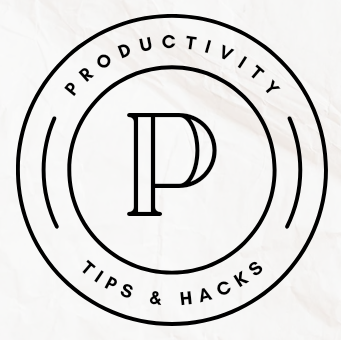
At some points in life, especially during hard times, many of us tend to overthink. While some amount of thinking is needed, overthinking brings with it many disadvantages. Here, we are going to find out how to stop your mind from overthinking and stay focus.
What Is Overthinking? Why Is It Not Good?
Overthinking involves dwelling on thoughts or sometimes needlessly trying to anticipate outcomes.
It’s like having a one-person debate club in your head 24/7.
While a little bit of thinking is crucial for decision-making and problem-solving, constantly mulling over every little detail does not benefit anyone.
The problem with overthinking is that when we overthink, we tend to spend many hours overthinking.
When this happes, overthinking can easily become a habit, which can seriously mess with your mental well-being.
You will find yourself stuck in a loop, replaying conversations, second-guessing decisions, or worrying about future events.
This will lead to increased stress, anxiety, and even depression if left unchecked for a prolong period of time.
In short, overthinking is just
thinking about a problem or situation over and over
The problem is instead of finding a solution, you just end up more stressed.
To make things worse, overthinking can spill over into other areas of your life, making it hard to focus on anything else.
It’s like trying to drive with the handbrake on.
After reading the above, if you think that you are overthinking, you need to
- Recognize that you’re caught in this overthinking trap.
- Be aware of how overthinking affects your mood and daily activities.
Recognizing that you are overthinking is the first step towards breaking youself free of this bad habit.
Being aware of how overthinking affects your mood and daily activities can encourage and help you take action to change this pattern.
Stay tuned, because we’re about to explore some practical ways to tackle this head-on.
Building Self-Awareness To Combat Overthinking
Self-awareness helps you to be aware of your own thoughts.
It is like your internal GPS, helping you navigate through the maze of thoughts.
By being aware of your thoughts, you can start to understand why you’re overthinking and most importantly, how to stop it in its tracks.
If you overthink, you should realise that most, if not all the time, negative thoughts automatically pops up without even you realising it!
Therefore, one big step in building self-awareness is to recognize when these automatic negative thoughts (ANTs) pop up.
These are those pesky, knee-jerk negative reactions to anything and everything.
They can be like a broken record, repeating the same unhelpful messages over and over.
Once you notice these ANTs, you can challenge them and flip the script!
Next, having a little compassion for yourself also goes a long way.
We’re all our own worst critics at times, but do know that beating yourself up over every mistake or potential misstep only fuels the overthinking fire.
Accept that you’re human, and it’s okay to have fears and flaws.
Embracing this can improve your psychological health and make it easier to move past the rumination.
Identifying triggers is another key aspect of self-awareness.
Ask yourself what situations or thoughts tend to send you spiraling into overthinking.
Knowing these triggers can prepare you to tackle them head-on when they arise.
It prevents you from getting sucked into the overthinking vortex.
Just this simple act of awareness can help to snap you out of the cycle, making way for a clearer, calmer mind.
Other Techniques And Strategies Which You Can Practise Yourself To Reduce Overthinking
One of the easiest ways to pull yourself out of an overthinking spiral is to distract yourself .
You can distract yourself by:
- Engaging in hobbies
- Meditatiing and practising deep breathing
- Practise mindfulness
- Taking a step back and see the bigger picture
- Noticing and acknowledging small successes
Engaging in hobbies you love, volunteering, or getting into some physical activity can be super helpful.
Doing something that occupies your hands and mind can give those repetitive thoughts a rest.
Meditation and deep breathing are like the dynamic duo of mental calmness.
These practices can help quiet that noisy brain of yours.
Even just five minutes of focusing on your breathing can make a noticeable difference.
It’s about taking that moment to reset and find your center.
Staying present is another powerful strategy. Mindfulness or grounding exercises can reel your thoughts back from the past or the future to the here and now.
These techniques help you focus on what’s in front of you and what you can actually control.
Sometimes, you need to take a step back to see the bigger picture.
Gaining perspective can help you figure out what’s really worth your energy and what’s not.
By identifying what’s your true priority, you can start to let go of smaller concerns that don’t deserve so much mental space.
Noticing and acknowledging small successes is another effective way to combat overthinking.
Celebrating those little wins shifts your focus from what went wrong to what went right.
It helps you to focus on the positive aspects than the negative ones.
Seeking External Support And Maintaining Focus
Helping others can be a surprisingly effective way to stop overthinking. 
Shifting your focus to someone else’s needs can give your mind a well-deserved break from your own needs.
Do not be surprised that in the process of helping others, you might feel that your own problem is not that serious after all!
Whether it’s through volunteering or just being there for a friend, lending a hand can definitely change your mental landscape.
Sometimes, all you need to quiet your racing thoughts is to think from a fresh perspective.
Considering different viewpoints can provide new ways of looking at a problem that might seem insurmountable when you’re stuck in your own head.
It’s amazing how a different angle can make a tangled issue seem much simpler.
Don’t sit on your thoughts—act on them!
When you take action, you break the loop of repetitive thinking.
Whether it’s tackling a task you’ve been putting off or making a decision you’ve been waffling on, doing something concrete can provide relief.
This turns your thoughts into movements, making them less likely to spin uncontrollably.
And hey, don’t hesitate to seek help from trusted people or even a therapist.
Talking things out can offer new insights and give you practical tools to manage overthinking.
Do not take it as a sign of weakness but a smart way to take care of your mental health.
Remember, you don’t have to handle it alone, and sometimes, an outside perspective can offer clarity you might not find on your own.
Now It Is Your Turn!
If you are currently trapped in the overthinking vortex, do apply the above techniques to your day to day activities!
I’m sure you will be able to see some improvements soon.
If you have any questions or suggestions on how to stop overthinking and to keep yourself focused, do let me know in the comments below.
I would very much, love to hear from you!

This article is timely and practical. Your strategies for managing mental clutter and enhancing focus are very insightful. I particularly resonated with the section on mindfulness and its role in calming an overactive mind. As someone who has struggled with overthinking, I have to admit that meditation didn’t produce long-term benefits for me, but for sure during and a few moments after it sure gave me a huge push. The technique that I have developed for myself was more into action. I have found that the more time I am spending on doing things the less time I am giving my brain to think.
One question kept nagging me during my self-observation on the benefits of meditation: how much time should I give for the meditation trial to understand its benefits? My trials did not last more than a couple of weeks each time, and each session would last between 10 to 20 minutes. A couple of my friends who saw the benefits of meditation and they do it religiously told me that I need to continue until I am able and relaxed to extend my sessions to 30 minutes a day. Unfortunately, I didn’t follow their advice, or I didn’t have time to follow their advices.
Hi The Investor,
Thank you so much for reading this article!
I think that when someone is just starting with meditation, it is important to know that patience and consistency is crucial to experience its benefits fully.
Generally, a trial of at least 4 to 8 weeks, practicing daily for around 10 to 20 minutes per session is recommended.
However, the benefits can vary by individual—some notice subtle improvements in mental clarity or calmness within a few days, while others might need a longer period to feel significant effects.
Thank you for this insightful article on stopping overthinking and staying focused!
As a homeschooling mom balancing so many responsibilities—teaching my youngest, supporting my teenager, and managing our household—it’s easy to get stuck in an overthinking loop. I really appreciated your practical tips, especially the part about setting clear goals and using mindfulness techniques. I’ve been working on incorporating more mindfulness into my daily routine.
Do you have any advice on how to quickly refocus when distractions pop up throughout the day? I’d love to hear more ideas on maintaining focus with a busy schedule!
Angela M. 🙂
Hi Angela,
Thank you so much for reading this post!
My favourite way to quickly refocus is to practice mindful breathing as soon as I am aware that I am being distracted. Try focus on breathing in and out for 5 mins. Mindful breathing always helps me to clear my mind.
And when you return from a distraction, do try to pick only one task to focus on. Based on my experience, trying to multitask tend to prolong my distraction.
I hope the above advice will help you.